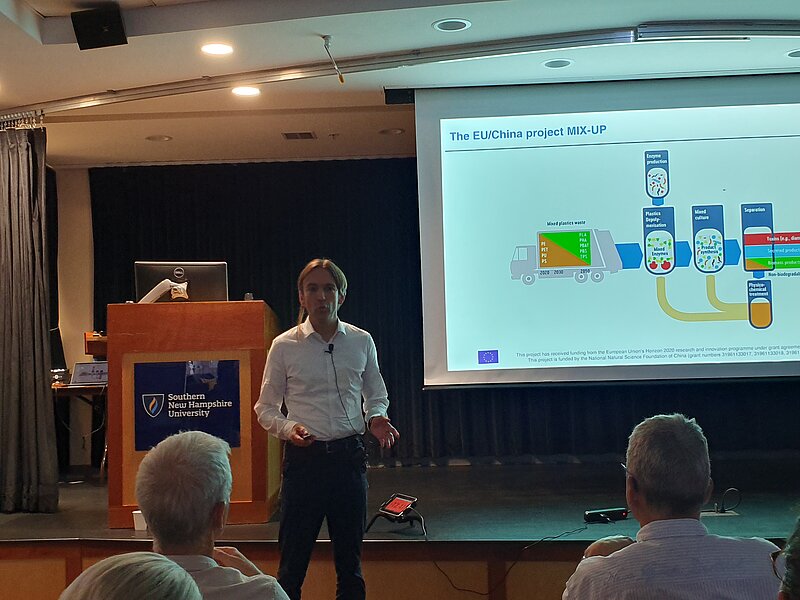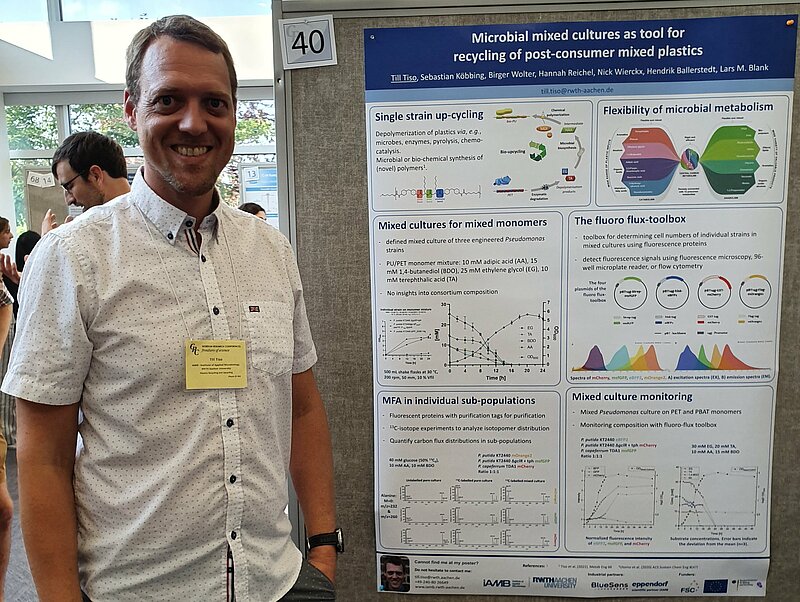In Lars’ presentation, he highlighted the scale of the plastic crisis. There are currently 4.8 billion tons of plastic in landfills, and this amount is only going to increase if we don't take action. However, he also presented the good news that there are new technologies emerging that can help us to turn plastic waste into valuable products. One promising technology is the use of mixed microbial cultures. These cultures contain a variety of different bacteria that can each degrade different types of plastic. This means that they can be used to break down mixed plastic waste, which is currently difficult to recycle.
Till presented a poster at the conference about the development of tools for analyzing mixed microbial cultures. These tools will help us to better understand how these cultures work and how we can optimize them for plastic upcycling.
Till: "The conference was a great opportunity to network with other researchers working on plastic upcycling. We met many talented people who are passionate about solving the plastic crisis. We also learned about a lot of new research and technologies that are being developed. We were particularly impressed by the level of expertise and enthusiasm of the speakers. They were all experts in their field, and they were able to communicate their research in a clear and engaging way. We also enjoyed the social events at the conference. We had the chance to meet new people, learn about their research, and make new friends. Thank you, to John McGeehan and Gregg Beckham for organizing a fantastic event. We are looking forward to the next conference in two years."
Lars: "The first Gordon conference on plastic recycling and upcycling was a great experience with plenty of opportunities to discuss progress on the many subjects required to become sustainable. The topic of 'emergency biodegradation' (defined here: https://doi.org/10.1038/s41929-020-00521-w), hence the possibility of plastic if lost into the environment to fully degrade was brought up several times. We from the project MIX-UP argue for polyesters in general, as much work on enzymes that can degrade the one or other polyester is well known. Others included “emergency biodegradation” in their plastic design. Ok, the naming is not consistent, but there is a large agreement that plastic, which likely ends in the environment, is not allowed to be there for decades or even centuries, like PE and PP. More important are however well implemented waste logistics that avoid mal-managed landfills. Technology is already there and will become more sophisticated in the future. Our worldwide implementation is however rather slow…"



